By Sande Smith
Dear Toni,
The other day, I was telling my friend about you. How you turned the Goldilocks story inside out, and made me look at Goldilocks in an entirely new way. After all, what was that rude, blonde child doing in the three bears’ house? Why in the world would you go into someone else’s house without knocking, eat their food, sit on their chairs (and break one, mind you), and then go and lie down in their beds? And furthermore, was it a coincidence that the bears were brown/black and the child was blonde—was this in fact just a thinly veiled pro-colonialism narrative?
The way you told it, why it was obvious that we should have been asking questions about Goldilocks. It was just one example of how you turned narratives inside out and demanded that we think more deeply, sharply, bravely about the narratives surrounding us.
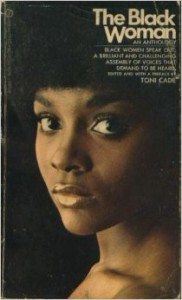 Toni, I was thinking about you when I went to a film a couple weeks ago that tells a powerful and inspiring history of the women’s movement. It’s called, fittingly, She’s Beautiful When She’s Angry, and it’s directed by Mary Dore. After the film, during the question and answer section, someone mentioned your anthology, The Black Woman, and I was sent back through time to that moment in the Philadelphia Free Library, Nicetown Branch, when I first saw that book with a Black woman and her glorious afro on the cover. Reading your words and the words of the women you brought together under one cover started me reading phrases and words about what it meant to be a Black woman and how our thoughts, understanding, yearnings fit into, influence are part of a revolutionary re-thinking of what it is to be woman!
Toni, I was thinking about you when I went to a film a couple weeks ago that tells a powerful and inspiring history of the women’s movement. It’s called, fittingly, She’s Beautiful When She’s Angry, and it’s directed by Mary Dore. After the film, during the question and answer section, someone mentioned your anthology, The Black Woman, and I was sent back through time to that moment in the Philadelphia Free Library, Nicetown Branch, when I first saw that book with a Black woman and her glorious afro on the cover. Reading your words and the words of the women you brought together under one cover started me reading phrases and words about what it meant to be a Black woman and how our thoughts, understanding, yearnings fit into, influence are part of a revolutionary re-thinking of what it is to be woman!
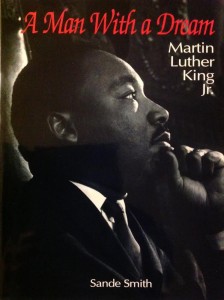 And then, to go from knowing you as a name on a book jacket to meeting you in the flesh and having the joy and honor of taking a scriptwriting class with you at Scribe Video Center in Philadelphia, getting to know you, talking with you, and reading W.E.B. DuBois’ Black Reconstruction with you and other members of the beloved Scribe community. To be in the company of your fierce and loving inquiry. Your influence didn’t stop there, though. When I was planning how to write the text for a photo book about Rev. Dr. Martin Luther King, Jr., you asked,
And then, to go from knowing you as a name on a book jacket to meeting you in the flesh and having the joy and honor of taking a scriptwriting class with you at Scribe Video Center in Philadelphia, getting to know you, talking with you, and reading W.E.B. DuBois’ Black Reconstruction with you and other members of the beloved Scribe community. To be in the company of your fierce and loving inquiry. Your influence didn’t stop there, though. When I was planning how to write the text for a photo book about Rev. Dr. Martin Luther King, Jr., you asked,
Hey, what about the pie women, the women who made pies on Sunday at church, the regular women who got King to think differently?
You inspired me to write the text with those women in mind, and from the perspective of King answering a call, listening to and serving the voices and knowledge of others.
So now what? That’s what I asked myself when my dear sister/friend Aishah asked me to join my voice in singing tribute to you. I have found it hard to conjure these words and place them on the page, because with every line, I ask myself, how have I carried on what Toni taught me? After all, for the past 20 years, I’ve worked for a variety of organizations as a communications person. I don’t see myself as a fiery writer, scholar, filmmaker, essayist creating for me and the people and liberation.
And yet, somehow, that makes it seem too simple. I know I’m not telling the whole narrative, because your words, your questions helped to shape the way that I think and approach my work as a communications person writing not just on behalf of people and causes related to ending poverty, standing up for women’s rights, and creating equal opportunity and access to education for all students—but in partnership with. Your willingness to question stock narratives fuels my passion to shift the vantage point and shift the story that we tell. For example, my communications work in organizations that believed and acted on the belief that providing policy training to and getting money into the hands of women who identified the crises in their communities was key. Why? Because these are the people who should be and are identifying the solutions. What they need are financial resources, solidarity, companionship and witnessing. Toni, your teachings, your wisdom and your narrative shifting were with me in that work.
As I try to pull these words out of me, I realize that part of the struggle stems from having not named the people who have influenced my thinking, my passion for the work that I do, and my approach. I haven’t called out the people beyond my mom who have influenced how I think and how I write. But with every word I put down here, it becomes clearer. If I were to write the story of the people whose intellect and activism fuels and inspires me day to day, you, dear Toni, would be chief among them.
Thank you.
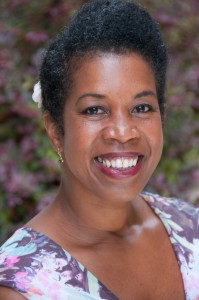 Sande Smith applies her skills to combining strategic communications, creativity and aspirational storytelling to rally support for social justice and the common good. Currently, she is the Director of Strategic Communications at ConnectEd: The California Center for College and Career, which is dedicated to advancing practice, policy and research aimed at helping young people prepare for both college and career. Prior to ConnectEd, Sande was Senior Director of Communications and Advocacy at the Women’s Foundation of California. While at the Foundation, Ms. Smith raised the Foundation’s profile and increased the number of people who engage with the mission. She holds a Bachelor’s degree in Portuguese and Brazilian studies from Brown University.
Sande Smith applies her skills to combining strategic communications, creativity and aspirational storytelling to rally support for social justice and the common good. Currently, she is the Director of Strategic Communications at ConnectEd: The California Center for College and Career, which is dedicated to advancing practice, policy and research aimed at helping young people prepare for both college and career. Prior to ConnectEd, Sande was Senior Director of Communications and Advocacy at the Women’s Foundation of California. While at the Foundation, Ms. Smith raised the Foundation’s profile and increased the number of people who engage with the mission. She holds a Bachelor’s degree in Portuguese and Brazilian studies from Brown University.
You may also like...
All Content ©2016 The Feminist Wire All Rights Reserved

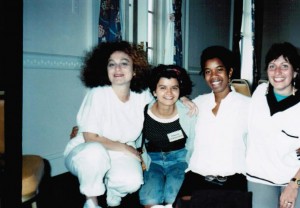
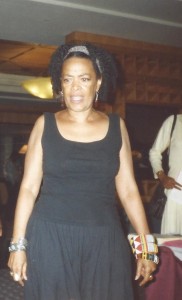

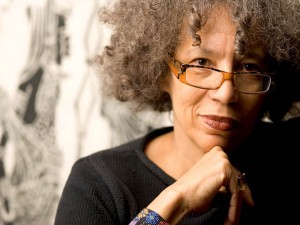
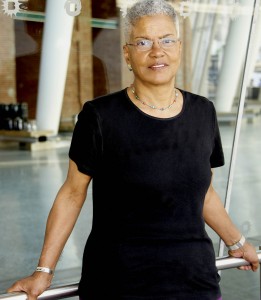
0 comments